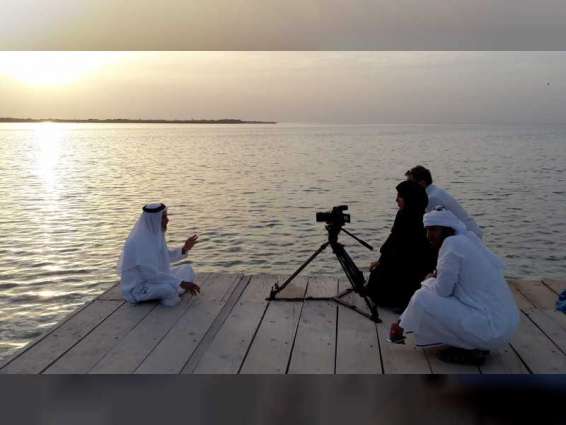ABU DHABI, (Pakistan Point News - 19th Nov, 2020) The Environment Agency
The launch, which was held to commemorate the World Fisheries Day - celebrated every year on 21st November, is also in collaboration with World Forum of Fisher Peoples, and International Planning Committee Working Group on Fisheries.
The voluntary guidelines recognise the importance of both indigenous, local marine-coastal community knowledge, and experienced Fishers’ Knowledge for the development of Fisheries Policy. They are designed to provide guidance on how to utilise this rich cultural knowledge in resource management, across a range of contexts, in pursuit of an ecosystem approach to fisheries management.
The management of fisheries is defined across marine and freshwater systems as well as commercial, recreational, subsistence and small-scale fisheries.
They guidelines were developed by a team led by the Environment Agency-Abu Dhabi and included contributions from 50 experts and case studies from 16 countries. They also consulted with stakeholders from subject matter experts to governments, small-scale fisher organisations, indigenous fisher organisations, civil society organisations, research and academia, and the private sector.
One of the important targets is "Target 18" on traditional knowledge which has three key elements. Firstly, respect of traditional knowledge, innovations and practices of indigenous and local communities relevant for the conservation and sustainable use of biodiversity, and their customary use of biological resources. Secondly, traditional knowledge is subject to national legislation and relevant international obligations.
Finally, traditional knowledge is fully integrated and reflected in the implementation of the Convention with the full and effective participation of indigenous and local communities, at all relevant levels.
Fishers’ Knowledge can be used by fisheries resource managers at community, local, regional, and national levels in countries where there are coastal, marine and freshwater fisheries. They can also be utilised by communities, Non-Governmental Organisations, NGOs, and researchers who wish to study and recognise traditional fishing knowledge in coastal, marine, and freshwater systems.
Dr. Shaikha Salem Al Dhaheri, Secretary General of EAD and IUCN Councilor for West Asia, said, "In the past, the sea and its fisheries were a source of sustenance and survival. Today, globally fishing accounts for about 17 percent of the global population’s intake of animal protein and provides around 3.2 billion people on the planet with nearly 20 percent of their animal protein. As a result, almost 90 percent of global fish stocks are either fully exploited or in decline.
"Achieving sustainable fisheries and seeking to maintain traditional links in society today is a significant topic, and one that the IUCN and we at EAD are proud to be working with the international community to solve."
She added, "Fishers have often been excluded from processes of data collection, analysis, interpretation and management. Currently, there is now increasing recognition of the value of incorporating traditional fishing knowledge in freshwater, riverine, lacustrine, and coastal and marine fisheries management. This is becoming evident in international conventions and published literature. As such, we know that the main purpose of these guidelines is to make it easier for users to recognise and include fishers’ knowledge as an important data stream in resource management."
The guidelines are complimentary to international instruments and guidelines including the Convention of Biological Diversity, Aichi Targets, to the United Nations Code of Conduct on Responsible Fisheries to the UN Small-Scale Fisheries Guidelines, as well as the IUCN and United Nations, food and Agriculture Organisation Guidelines that highlight the importance of traditional knowledge.
In 2016, EAD, in collaboration with Ministry of Climate Change and Environment, launched the UAE Sustainable Fisheries Programme in recognition of the severely overexploited state of fisheries resources in the UAE, which aimed to ensure that the UAE fisheries are utilised sustainably.
As part of that programme EAD completed a survey of over 300 fishers across the Emirates. It was revealed that 80 percent of the experienced fishers surveyed considered at that time that the fishery was severely overexploited, independent of the scientific information.




